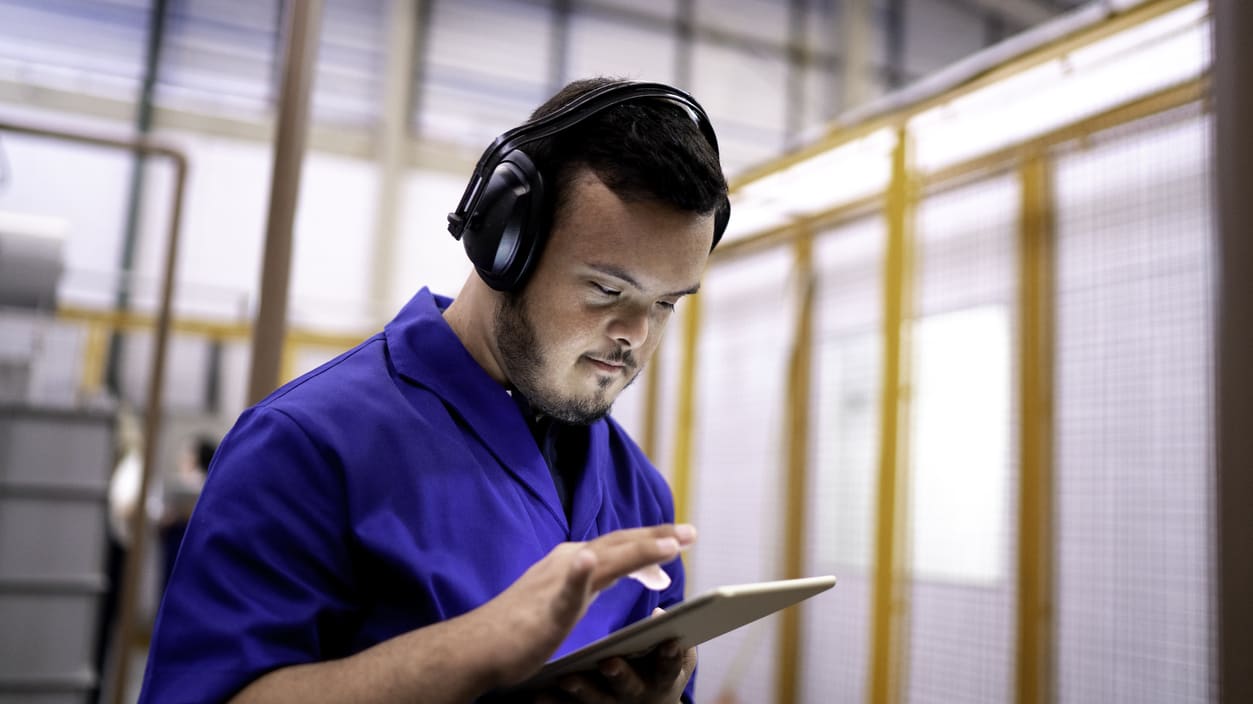The Society for Human Resource Management (SHRM) and the SHRM Foundation are bringing attention to the workplace contributions of people with autism and intellectual and developmental differences. To do this, they have partnered with the Entertainment Industry Foundation (EIF) and the Delivering Jobs inclusion campaign.
The founding partners of the Delivering Jobs campaign include Autism Speaks, Best Buddies and Special Olympics, in concert with the EIF. They are working to create 1 million employment and leadership opportunities for these individuals by 2025. The Delivering Jobs campaign is building a foundation of sustainability for inclusive workplaces through consumer awareness and community activation.
"The mission of the SHRM Foundation is to mobilize the power of HR professionals and the generosity of donors to lead positive change in the workplace," stated Wendi Safstrom, executive director of the SHRM Foundation.
"Research shows individuals who are differently abled bring tremendous perspective, talent and value. In other words, inclusive hiring is not just the right thing to do; it makes good business sense. This has a cascading, positive effect for our society, communities, families—and our places of work," Safstrom added.
Employment for people with disabilities is much more meaningful than simply providing a paycheck, said Anthony K. Shriver, founder and chief executive officer of Best Buddies International (BBI).
"It's easy to take employment opportunities for granted, but for people with special abilities it is more than a job—it's a recognition of their talent, a chance to gain financial independence and a pathway to social inclusion," he said in a news release. "Plus, it improves the bottom line for businesses small and large every day."
[SHRM members-only toolkit: Accommodating Employees' Disabilities]
Nearly all HR professionals (97 percent) and people managers (92 percent) surveyed said employees with disabilities regularly perform the same as or better than their peers without disabilities, according to the SHRM 2019 research report Employing Abilities @Work. However, people with disabilities face employment challenges.
Since the World Health Organization proclaimed COVID-19 a pandemic in March, approximately 1 million U.S. workers with disabilities have lost their jobs, according to the University of New Hampshire Institute on Disability. One in 5 workers with disabilities have been dismissed from employment since March 1, compared with 1 in 7 generally, SHRM Online reported in August.
The SHRM findings also show that just 13 percent of U.S. workplaces have disability-specific inclusion initiatives, and more than half of people managers have not participated in any disability inclusion training.
Earlier this year, the SHRM Foundation announced a new initiative, the Employing Abilities @Work Certificate, for HR professionals and hiring managers. The program was developed after findings from the Employing Abilities @Work research unearthed misunderstandings among HR professionals and managers about the capabilities of employees with disabilities and the costs associated with accommodations that might be needed.
Additionally, the Foundation is creating an Inclusion Captains ambassador program to drive awareness and education about building inclusive workplaces.
Delivering Jobs is asking employers to pledge their commitment on the BBI website to re-evaluate hiring practices and identify ways their company can create job opportunities for people with disabilities, increase their hiring efforts for this population and create inclusive systems to support all employees.
Other SHRM Resources:
COVID-19 and Workers with Disabilities, SHRM Online, May 2020
Where Can Employers Find Qualified Applicants with Disabilities?, SHRM members-only HR Q&A
Employing People with Cognitive Disabilities, SHRM members-only toolkit
Employers Don't Understand the Work People with Disabilities Can Do, SHRM Research Finds, SHRM Online, October 2019
Employing People with Disabilities video, Facebook, October 2019
4 Ways to Hire More People with Disabilities, SHRM Online, February 2019
An organization run by AI is not a futuristic concept. Such technology is already a part of many workplaces and will continue to shape the labor market and HR. Here's how employers and employees can successfully manage generative AI and other AI-powered systems.




